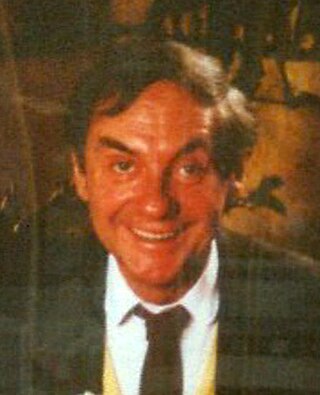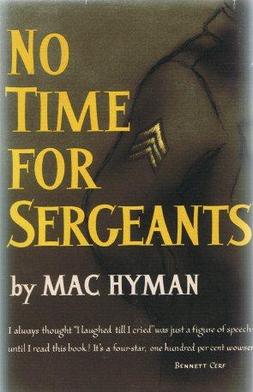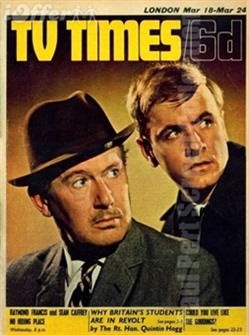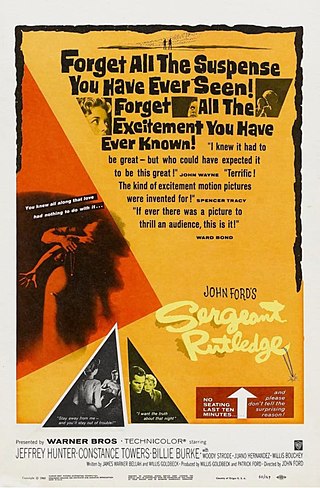
Dragnet is an American media franchise created by actor and producer Jack Webb, following Los Angeles Police Department (LAPD) Detective Joe Friday and his partners as they conduct by-the-book police work and solve crimes in Los Angeles. Originating as a radio drama on NBC in 1949, Dragnet has been adapted into several successful television shows and films, though the franchise's popularity has reduced since Webb's death in 1982. Its name is derived from the police term "dragnet", a system of coordinated measures for apprehending criminals or suspects.

Hogan's Heroes is an American television sitcom set in a prisoner-of-war (POW) camp in Nazi Germany during World War II, which concerns a group of Allied prisoners who use the POW camp as an operations base for sabotage and espionage purposes directed against Nazi Germany. It ran for 168 episodes from September 17, 1965, to April 4, 1971, on the CBS network, the longest broadcast run for an American television series inspired by that war.

Band of Brothers is a 2001 American war drama miniseries based on historian Stephen E. Ambrose's 1992 non-fiction book of the same name. It was created by Steven Spielberg and Tom Hanks, who also served as executive producers, and who had collaborated on the 1998 World War II film Saving Private Ryan. Episodes first aired on HBO starting on September 9, 2001. Critically acclaimed, the series won the Emmy and Golden Globe awards for best miniseries.
The police procedural, police show, or police crime drama is a subgenre of procedural drama and detective fiction that emphasizes the investigative procedure of police officers, police detectives, or law enforcement agencies as the protagonists, as contrasted with other genres that focus on non-police investigators such as private investigators.

The Phil Silvers Show, originally titled You'll Never Get Rich, is a sitcom which ran on the CBS Television Network from 1955 to 1959. A pilot titled "Audition Show" was made in 1955, but it was never broadcast. 143 other episodes were broadcast – all half-an-hour long except for a 1959 one-hour live special. The series starred Phil Silvers as Master Sergeant Ernest G. Bilko of the United States Army.

Burke's Law is an American detective series that aired on ABC from 1963 to 1966. The show starred Gene Barry as millionaire captain of Los Angeles Police homicide division Amos Burke, who is chauffeured around to solve crimes in his 1962 Rolls-Royce Silver Cloud II complete with an early car phone.

Sgt. Franklin John Rock is a fictional character appearing in American comic books published by DC Comics. Sgt. Rock first appeared in Our Army at War #83, and was created by Robert Kanigher and Joe Kubert. The character is a World War II soldier who served as an infantry non-commissioned officer.
Easy Company is a fictional comic book World War II US Army infantry unit led by Sgt. Rock in stories published by DC Comics. The group first appeared in Our Army at War #81, and were created by Bob Haney and Ross Andru.

Sgt. Frog, known in Japan as Keroro Gunso, is a Japanese manga series written and illustrated by Mine Yoshizaki. It was launched in Monthly Shōnen Ace in April 1999. The story follows the attempts of a platoon of frog-like alien invaders to conquer Earth. Sergeant Keroro, the titular character, is the leader of the platoon, but is at the mercy of a human family of three after being captured by them. Keroro is forced to do meaningless chores and errands for the family after his army abandons his platoon on Earth. The series was later adapted into an anime television series by Sunrise, which ran for 358 episodes from April 2004 to April 2011. A second 23-episode series was broadcast from March to September 2014.

Joe Friday is a fictional character created and portrayed by Jack Webb as the lead for his series Dragnet. Friday is a detective in the Los Angeles Police Department. The character first appeared on June 3, 1949, in the premiere of the NBC radio drama that launched the series. Webb played the character on radio and later television from 1949 to 1959 and again from 1967 to 1970, also appearing as Friday in a 1954 theatrical release and a 1966 made-for-TV film.
Challenge of the Yukon is an American radio adventure series that began on Detroit's WXYZ and is an example of a Northern genre story. The series was first heard on January 3, 1939. The title changed from Challenge of the Yukon to Sergeant Preston of the Yukon in September 1950, and that title was retained through the end of the series and into a television adaptation.

Harald Juhnke, was a German actor, comedian, and singer.

Combat! is an American television drama series that originally aired on ABC from 1962 until 1967. The exclamation point in Combat! was depicted on-screen as a stylized bayonet. The show covered the grim lives of a squad of American soldiers fighting the Germans in France during World War II. The first-season episode "A Day in June" shows D-Day as a flashback, hence the action occurs during and after June 1944. The program starred Rick Jason as platoon leader Second Lieutenant Gil Hanley and Vic Morrow as Sergeant "Chip" Saunders. Jason and Morrow would play the lead in alternating episodes in Combat!.

Robert DoQui was an American actor who starred in film and on television. He is best known for his roles as King George in the 1973 film Coffy, starring Pam Grier; as Wade in Robert Altman's 1975 film Nashville; and as Sgt. Warren Reed in the 1987 science fiction film RoboCop, the 1990 sequel RoboCop 2, and the 1993 sequel RoboCop 3. He starred on television and is also known for his voice as Pablo Robertson on the cartoon series Harlem Globetrotters from 1970 to 1973.

No Time for Sergeants is a 1954 best-selling novel by Mac Hyman, which was adapted into a teleplay on The United States Steel Hour, a popular Broadway play and 1958 motion picture, as well as a 1964 television series. The book chronicles the misadventures of a country bumpkin named Will Stockdale who is drafted into the U.S. Army during World War II and assigned to the U.S. Army Air Forces. Hyman was in the Army Air Forces during World War II when it was part of the U.S. Army.

No Hiding Place is a British television series that was produced at Wembley Studios by Associated-Rediffusion for the ITV network between 16 September 1959 and 22 June 1967.

Sergeant Rutledge is a 1960 American Technicolor Western film directed by John Ford and starring Jeffrey Hunter, Constance Towers, Woody Strode and Billie Burke. The title was also used for the novelization published in the same year. Six decades later, the film continues to attract attention because it was one of the first mainstream films in the U.S. to treat racism frankly and to give a starring role to an African-American actor. In 2017, film critic Richard Brody observed that "The greatest American political filmmaker, John Ford, relentlessly dramatized, in his Westerns, the mental and historical distortions arising from the country’s violent origins—including its legacy of racism, which he confronted throughout his career, nowhere more radically than in Sergeant Rutledge."
We'll Meet Again is a British television drama set in the Second World War. It was produced by London Weekend Television (LWT) for the ITV network and was broadcast in early 1982 in the Friday primetime slot of 9 pm.
Harald Philipp (1921–1999) was a German film director, screenwriter and actor.

Percy Stuart is a German TV series (1969–1972).